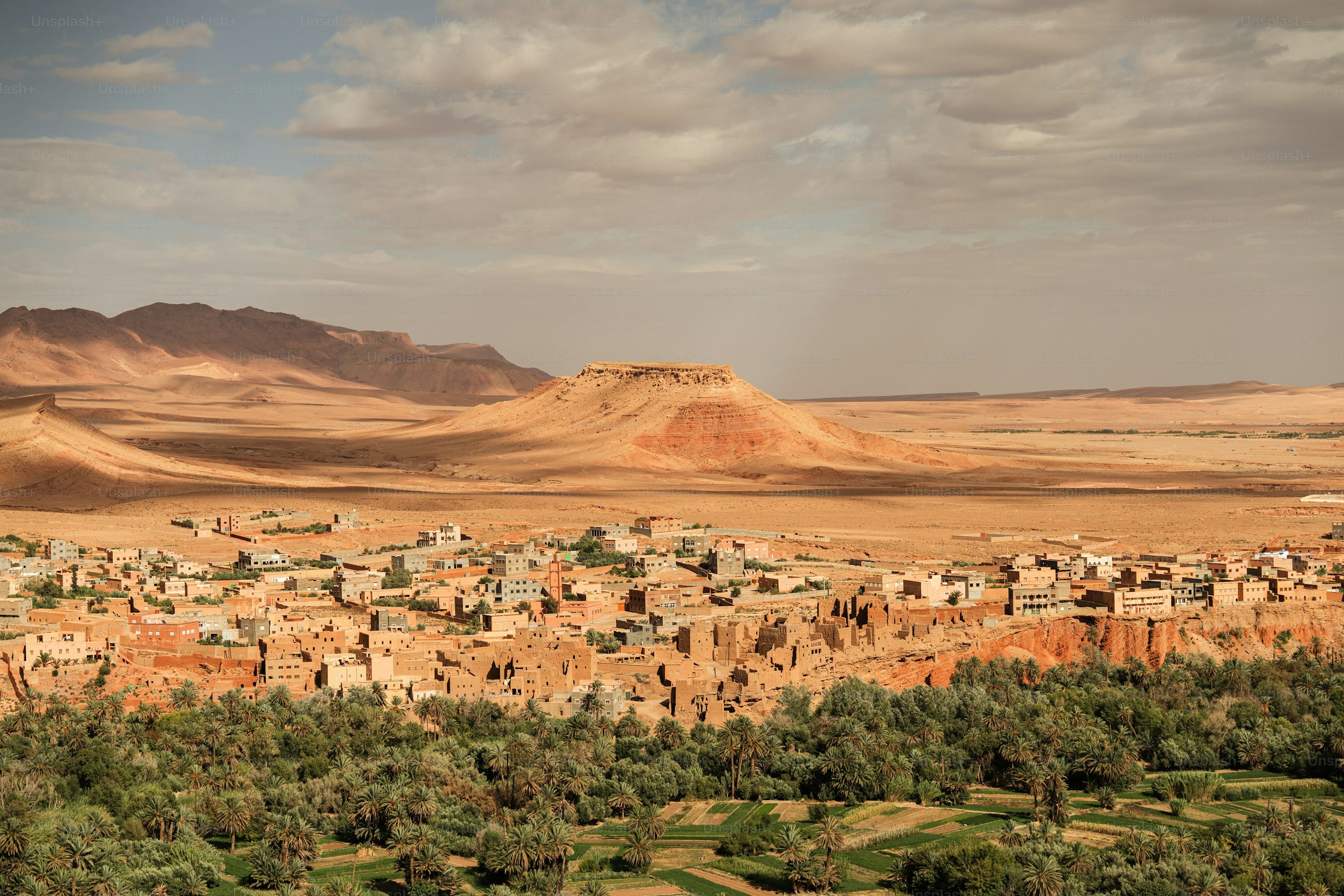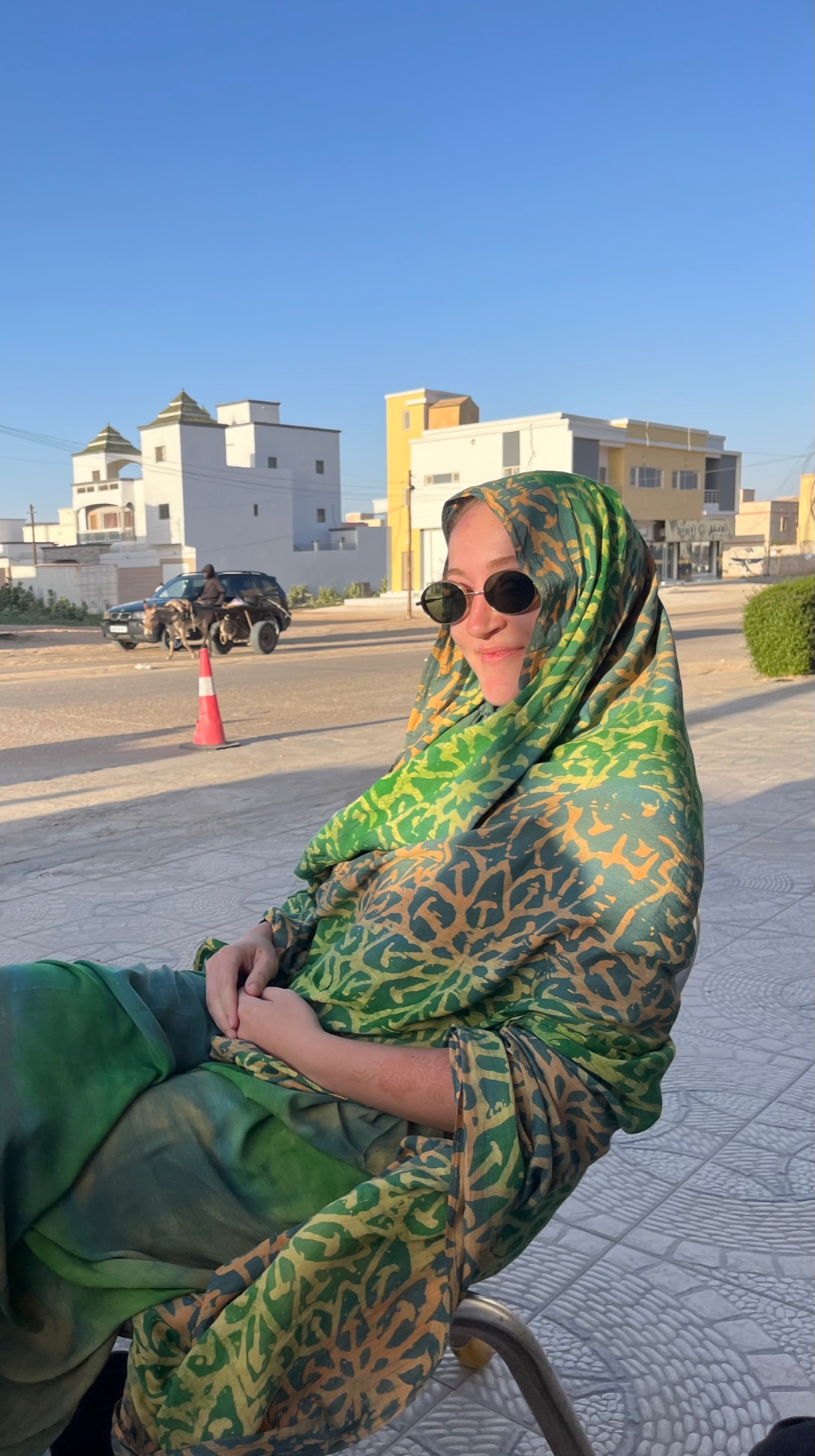Bride fattening (or leblouh) is an ancient custom from Mauritania’s nomadic past. A hefty woman was seen as a sign of beauty and wealth in a desert environment where food could be scarce. While some might see this as a symbol of body positivity, the practice of bride fattening can be quite horrific and most often involves force-feeding and sometimes abusing weight-gaining medications. The desired weight is on the level of obesity, so it can be quite harmful to a woman’s health in the long-term. Culturally, it also bases a woman’s value entirely on her figure. If the only way a woman can have power is through her beauty, she will go to any length to achieve it for herself and her daughters.
History
The tradition of leblouh likely goes back as far as the 11th century and stems from the rich white Arab Moor nomads. The richer the man, the less his wife had to do, so she would sit in her tent all day, while her slaves did everything for her. This resulted in an overweight woman being the ideal beauty standard in Mauritania. Songs and poems equated stretchmarks with precious gems and rolls of fat around the waist were praised. Girls are still told they need to be fat to be pretty. Men say skinny women look like skeletons and a larger woman is more comfortable to be with in bed. There is even a Moor proverb that directly correlates a woman’s size to the amount of space she takes up in his heart. In other words, to attract a typical Mauritanian man, you need to pack on some pounds.
The Diet and Fattening Camps
Leblouh is usually done during the rainy season when food is most plentiful. The process can start when a girl is as young as 5 years old, to increase her appetite and the size of her stomach, which makes leblouh easier for her as she gets older. The practice of force-feeding the girls is often referred to as gavage- the same term used for the practice of force-feeding geese to make foie gras. At the start of the season, a girl will be consuming close to 9,000 calories a day. By the end of the 2–3-month season, she will be forced to eat 16,000 calories a day. Often a girl is sent away to a feeder at a “fattening camp”- or sometimes it is done by her mother or grandmother. The diet she is given consists mostly of camel’s milk, pounded millet, butter, and couscous. Ideally, in nomadic society a girl would be married off around age 12 or 13. Legally, today a girl must be 18 to be married, though younger brides are still common as rural marriages are not overseen by the state.
Leblouh involves eating way past a feeling of discomfort. This means that mothers, grandmothers, or the feeder, will often inflict pain on the girl to get her to keep eating. One method, called Zayar , involves pinching a girl’s toes between two large sticks. There have also been many reports of breaking a girl’s fingers as a form of punishment and torture, and many cases of beating. Often, a girl might be tied up and told she can’t see her friends until she finishes eating- this also prevents her from burning the calories she has ingested. Occasionally, if a girl becomes sick and expels the food, she will be forced to eat it again.
While many in the western world would say this is child abuse, Mauritanians who practice leblouh say they are doing it in their daughter’s best interest. They say if they do not force-feed her, she will be made fun of for her body and for being poor and will not fit in with the rest of her friends. Being skinny will also significantly decrease her marriage prospects. They see leblouh not only as an act of practicality, but of love.
The Dangers of Beauty
Because the practice of leblouh usually stops after a girl is married, how does a woman maintain the country’s beauty standard in adulthood? Unfortunately, many women will take drugs to increase their weight that they can easily buy in the market from vendors with no pharmaceutical knowledge. Often these are drugs meant to treat something else, but with side effects that affect the metabolism or cause weight gain. Some of these drugs have other dangerous side effects, like heart attacks and kidney failure. Sadly, many women have died from abusing drugs they were never meant to be taking.
In addition to the effects of dangerous medications, girls and women consuming thousands of calories a day face many other health risks. Girls as young as 14 have been hospitalized for heart conditions. They are also at risk for diabetes, hypertension, osteoarthristis, and many other obesity-related illnesses. Some women who see their own health risks and limited mobility say they want to diet but are scared they will no longer be desirable in the male gaze.
Leblouh Today
Leblouh is not as prevalent today as it once was, but it still exists, particularly in rural areas where the beauty standard remains the same. In cities, the younger generations seem to understand the health risks of this practice and mostly reject it. There are also government campaigns raising awareness about the risks of obesity. Women’s organizations in Mauritania are advocating against this practice and are striving for women’s empowerment. Globilization and the rise of social media have also contributed to a shift in social norms. Many Mauritanians will tell you that bride-fattening has been eradicated, but that is simply not true. There are not laws protecting young girls from this practice, and there have been no court cases against it. Leblouh is still quite common in rural areas and the beauty standard still trends toward a fatter woman.
If you enjoyed learning more about the customs of Mauritania, you might be interested in reading some of our other Mauritania blogs: 5 Must see Places in Mauritania , Which airlines fly to Nouakchott and Can You Still Ride The Iron Ore Train? If you are interested in travelling to Mauritania, check out our Mauritania Destination Guide .



